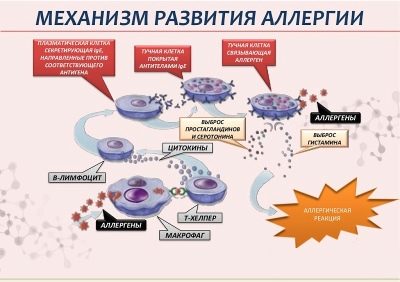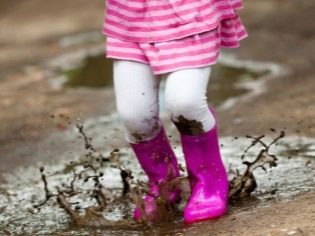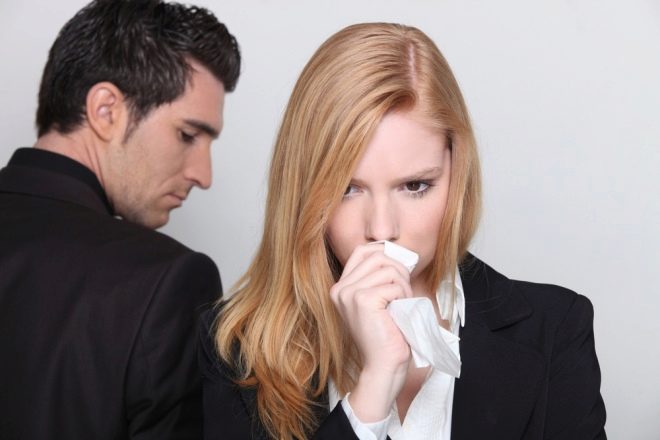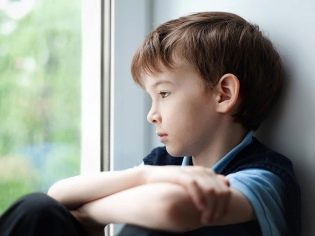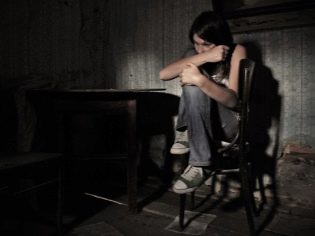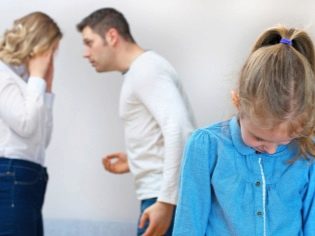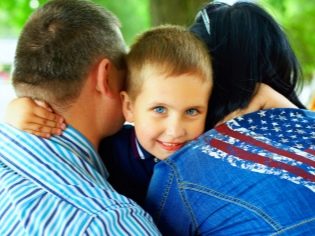Psychosomatics allergic diseases in children and adults
According to the World Health Organization, today on the planet every twelve people suffer from different types of allergies. It is predicted that in 10 years the number of allergy sufferers will at least double. The causes are often referred to as deterioration in the quality of food, the environment, reduced immunity in children, and excessive use of medications. However, not only this affects the manifestation of allergy in adults and children.
Allergy is a condition in which very often the cause lies not in allergens and not in the immune response to them, but in the psychological premises that are formed in childhood or at an older age.
In this article we will talk about psychosomatic allergies.
The look of medicine is traditional
The official medicine understands an allergy as a pathological reaction of immunity to certain antigens. For reasons that have not been fully studied by physicians, immune cells begin to perceive a substance in the body as an enemy, a stranger. Protective cells produce specific antibodies to this substance, grow entire colonies of modified immune cells, whose task is to fight exclusively with this antigen.
When a substance enters the body for the second time, a battle develops at the cellular level, clearly manifested in the form of rashes, edemas, swelling of the mucous membranes, digestive disorders and general deterioration of the human condition and well-being.
Most often, according to statistics, children suffer from allergies.
The most common food allergies, allergic reactions to flowering, pollen, animal dander, medicines, are also allergic to the sun and cold.which is manifested by the formation of spots and skin rashes. The most common manifestations of allergies are allergic rhinitis (runny nose), rash, pruritus, allergic conjunctivitis (when a negative reaction occurs on the eyes), and eating disorders.
For treatment, recommendations to eliminate contact with the allergen, as well as antihistamines and hormonal drugs are usually used.. In severe cases, drugs that suppress the activity of the immune system (immunosuppressants).
The view of psychosomatic medicine
Traditional medicine, due to insufficient knowledge of the original causes of inadequate behavior of the immune system, treats only the symptoms - manifestations of allergy (prescribed ointment for rashes or drops from the common cold), suppresses the immunity with suppressor drugs, so that it “does not rage”. The cause cannot be treated. And she is often in the field of psychosomatic medicine - a science that is at the interface of medicine and psychology.
From the point of view of psychosomatics, allergy is an external manifestation of the internal rejection of the surrounding world.
Please note that the manifestations of any allergy are always closely connected with the organs and systems of the body that are in any way in contact with the external environment - the skin, mucous membranes of the nose and respiratory tract, eyes, digestive tract (food enters it from the outside).Allergy is almost never manifested at the level of organs that do not have contact with the outside world - at the level of the kidneys, spine or heart.
It follows the simple conclusion that inadequate reaction of the organism is inadequate reaction of the person himself to the world around him.
When evaluating the world, a person uses the familiar “friend-and-alien” system, as well as personal convictions, experience, and views. If he does not like something in what he sees, hears, perceives, then he experiences unpleasant emotions that psychoanalysts are classified as destructive - anger, irritation, fear, anger, resentment. Accumulating in the subconscious, these emotions sooner or later find a way out. And this exit is a disease.
With the rejection of himself, self-abasement and terrible resentment develop pathological problems inside - tumors, inflammatory psychosomatic diseases, nervous disorders. If aggression is aimed at the world around, then violations will be from outside. So, with fear of the outside world, with the rejection of it, allergies are born.
Developmental mechanisms in children
The task of the skin, mucous membranes - to protect the body from adverse external influences.
If a child belongs to the world around with hostility or caution, then the manifestations of allergies are almost inevitable.
But from where, you ask, can a baby take a negative perception of the world around, because he has not yet had time to form his own experience of interacting with him? Everything is very simple. The kid really didn’t have time to add opinions about what is good in this world and what is bad, what is dangerous and what is safe, but his parents managed to do this, who from the first days of their life begin to teach this child to their children.
While the infant is lying in the cradle, mom and dad are worried that he will not be blown, that strangers will not touch it, that they will not be infected with bacteria or viruses. Mom is terribly afraid to eat something “wrong” while breastfeeding. The infant feels great, although he is not able to analyze it for the time being, his mother's experiences, and therefore the world around him begins to seem to him not so safe.
When a child develops independent walking, he is constantly warned (of course, solely out of good intentions) that it is impossible to attack a puddle - there will be a cold, you don’t need to stroke a cat - there will be worms or fleas, especially if the cat is alien. From the first years of his life, the baby is firmly laid by the subconscious unit, which says that the world around it must be feared, because it carries a threat.
The stronger the parents try, the more often the baby becomes covered with a rash on the eaten berries or a stroked alien cat, a runny nose, a cough appears. All of these protective mechanisms in his body "turn on" subconsciously, to protect the little man from the dangers.
And now try yourself to answer the question, why in dysfunctional families or families with many children, and therefore it’s not always possible to follow everyone so that he doesn’t touch the cat in the yard, children suffer from allergies much less often than the children surrounded by parental care? The answer is simple - they have less beliefs about the dangers of the world.
And one more nuance - why, overwhelmingly, the allergy “overgrows” and passes without a trace in childhood, and only 2% of children take it with them to adulthood? The answer is also not too complicated - with age, the child gains his own experience, forms personal attitudes that destroy the attitudes of mom and dad, and this “reconciles” him with the world around him.
Another one the cause of allergies in children is intolerance to someone in their own environment. Usually, such an allergy does not manifest itself from birth, but at a more conscious age, for example, at the birth of a second child, when less attention is paid to the first and anger and resentment develops at the younger one, and also when a stepfather or stepmother appears in the family, if this person does not like.
Such an allergy can also be quite strong, but it usually “outgrow”, gradually understanding what is what in the relationship between people.
From childhood to adulthood, those who have parental attitudes were stronger than their own experience if they were authoritarian and strong, if their own will and self-esteem of the child were seriously affected (they caress cats in the yard and did not dare!).
The conclusion is simple - the further the civilization walks towards its development, the more it moves away from nature, nature is considered unsafe. Therefore - the growth of allergic diseases throughout the world.
Please note that people who still live close to nature and do not create convictions to their children that puddles and cats are dangerous (nomadic people, people of the North, some people of Africa) have almost no cases of allergies in children, as well as cases of bronchial asthma. These children's diseases today are the lot of developed and developing countries in which most of the children live in cities, in comfortable apartments, surrounded by asphalt and the Internet.
Why appear in adults?
Main cause development of allergies in adulthood should also be considered a conflict with the worldbut it develops a little differently. In most cases, a negative attitude towards the environment is purely personal, based on an unpleasant experience.
Woman betrayed, deceived, and well, if only once. If in her life there were several such men, she may well form a negative opinion about representatives of the opposite sex, and in their presence (at work, for example) if necessary, a fairly close contact, she may well become aggravated dermatitis on the hands, on the face, manifest hives. A woman, of course, will look for the cause in pollen, dust, but gradually she will begin to notice that in the women's team, even in May, when everything is blooming, she has no itching, no rash, or a runny nose.
Another example: a person is forced to communicate with a certain unpleasant person. And this communication is long-term (for example, at work, in the family). With the accumulation of irritation, which is not possible to express for fear of being dismissed, expelled or misunderstood, skin forms of allergies develop.
If a person feels and says that he literally "does not digest" someone or something, then the development of food allergies is likely, which also will have quite physiological signs of food indigestion.
The subconscious mind is designed so that everything that appears and is reinforced by a strong emotion may well be realized, and exactly as it was intended, that is, literally (do not digest someone? - get indigestion and rash).
The psychology of diseases is based precisely on the identification of the root cause, which launched pathological processes at the physiological level.
If you find it right, you will not have to be observed by an allergist for many years, to absorb tons of drugs. From allergies with proper psychocorrection will not remain a trace.
Psychological portrait of allergies
Who is at risk of becoming an allergy most? This question requires separate clarification, since certain prerequisites in temperament and personality type determine, among other things, the development of allergy.
So, the potential (or already active) allergy:
- Often annoyed on trifles, a scandal can start from scratch.
- Prone to violent manifestations of anger, anger, often judging negatively neighbors neighbors, acquaintances, colleagues, government, etc.
- He is afraid of everything new and unfamiliar, he is wary and suspicious of people, offers, and prospects.
- It is very suspicious, it often seems to him that behind his back someone is conspiring, plotting something.
- He is afraid of the future, does not like to make plans, does not trust people around him.
- With enthusiasm, she once again digs up her past experiences, offenses, can spend hours talking about how he was unjustly treated, and treated.
- Very pedantic, often picky to others.
- Absolutely convinced in stereotypes.
- Not sure of his strength, has low self-esteem.
- Wants to always be the best in everything.
- Sometimes, despite the inner emotionality, it is very restrained internally, trying not to show its true emotions.
- He blames anyone or anything for his troubles, but not himself - the weather prevented, laws passed, evil people, circumstances. Taking responsibility and changing something in your life is usually not solved.
- Dissatisfied with his life, even if everything in it goes the way he wanted, does not know how to rejoice in trifles.
Allergy sufferers (both children and adults) are very touchy. They can be offended by a typical child insult not even at unpleasant words or deeds addressed to themselves, but at the reasons they have invented because of their heightened suspiciousness.
There are a lot of allergy sufferers who suffered the strongest stress-experience in childhood., for example, was pretty scared of a huge spider thrown into his backpack. Subsequently, the negative reaction of the body will be produced every time at the sight or mention of arthropods.
The subconscious mind does not concretize, it is able to connect fear or hostility experienced by something with completely unrelated objects from the external world.
Example: a child eats a pear, at this moment he sees on TV a terrible monster in a film that scares him. If the fear was very strong, then it is possible that at the psychosomatic level there will be a link between the release of the stress hormone and the pear that the child was eating at that moment. So the allergy to pears is born. Every time a child is given this fruit, he will have a rash on his face, on his hands or even food allergies to the product.
Reasons from the point of view of different researchers
Researchers in the field of psychosomatic medicine and psychology often, for the convenience of readers, compile tables of diseases with justification of the most probable causes of their occurrence. Those who decide to look for an answer in these tables may encounter some discrepancies. They are related to the fact that each researcher made conclusions based on his experience and the experience of his patients. Here are some points of view of recognized figures in the field of psychosomatics:
By Liz Burbo
Liz Burbo believes that any manifestations of allergy, whether it is atopic dermatitis or allergic rhinitis, are associated with aversion of reality, irritability. In her opinion an allergic person forbids himself to live and breathe deeply, to enjoy life only because he is convinced from childhood that any well-being and pleasure must be earned.
This setting is usually formed in childhood, when parents praise and approve of the child only for good grades and success in sports. If he stumbles, they scold him. On an emotional level, an allergy sufferer has obvious blockages of emotions, fears, offenses.
According to Valery Sinelnikov
Therapist and psychotherapist Valery Sinelnikov believes that the cause of allergies in violation of the exchange with the world of their emotions. In other words, a person does not know how to express his feelings, they accumulate. If enough “dirty” thoughts are accumulated, then rash, dermatitis, urticaria appear.
Children's allergies, according to Dr. Sinelnikov, often occur as a way to attract adult attention, to draw their attention to the fact that they have accumulated quite a lot of "dirty" emotions. Thus, in families where parents often quarrel, a small child who cannot otherwise influence the situation expresses his irritation at the scandals of two people who are dear to him with allergic attacks.
By Louise Hay
Louise Hay saw deep-seated roots of an allergic reaction in self-doubt, inability to cope with that irritation, which is caused by someone or something surrounded by a person.
She recommended removing the negative attitude with new affirmations, which should gradually supplant the hostile perception of the world and the people around them and create a more benevolent background.
New statements should be based on the principles of their own security, a person must convince himself that there is nothing dangerous or hostile around him, that he is safe.
Treatment for psychosomatic reasons
The treatment of allergies by traditional means, as we understood, is a struggle with symptoms. Considering that they are the ones who are worried, it is clearly not worth refusing to use tablets, ointments and injections prescribed by a doctor. But the allergy will return again if the cause is not found or is not eliminated.
Knowing that the reason is inside us, we should analyze the situation. If this is difficult to do on your own, you should turn to a psychologist or psychotherapist. Treat allergies need awareness of the problem, and techniques that will allow to achieve greater proximity to the environment and people.
Trainings to increase confidence, to eliminate negative children's attitudes, to forgive offenders, as well as relaxation methods, art therapy (for children and adults) - will surely give results. The more tolerant and benevolent the world becomes for a person, the less allergic inclinations will appear.
In order to cure a baby, parents should pay attention not only to the list of medications prescribed by the pediatrician, but also to their relationships and the attitude of each spouse to the world outside the apartment's threshold.
For details on the psychosomatic causes of allergies, see the following video.



